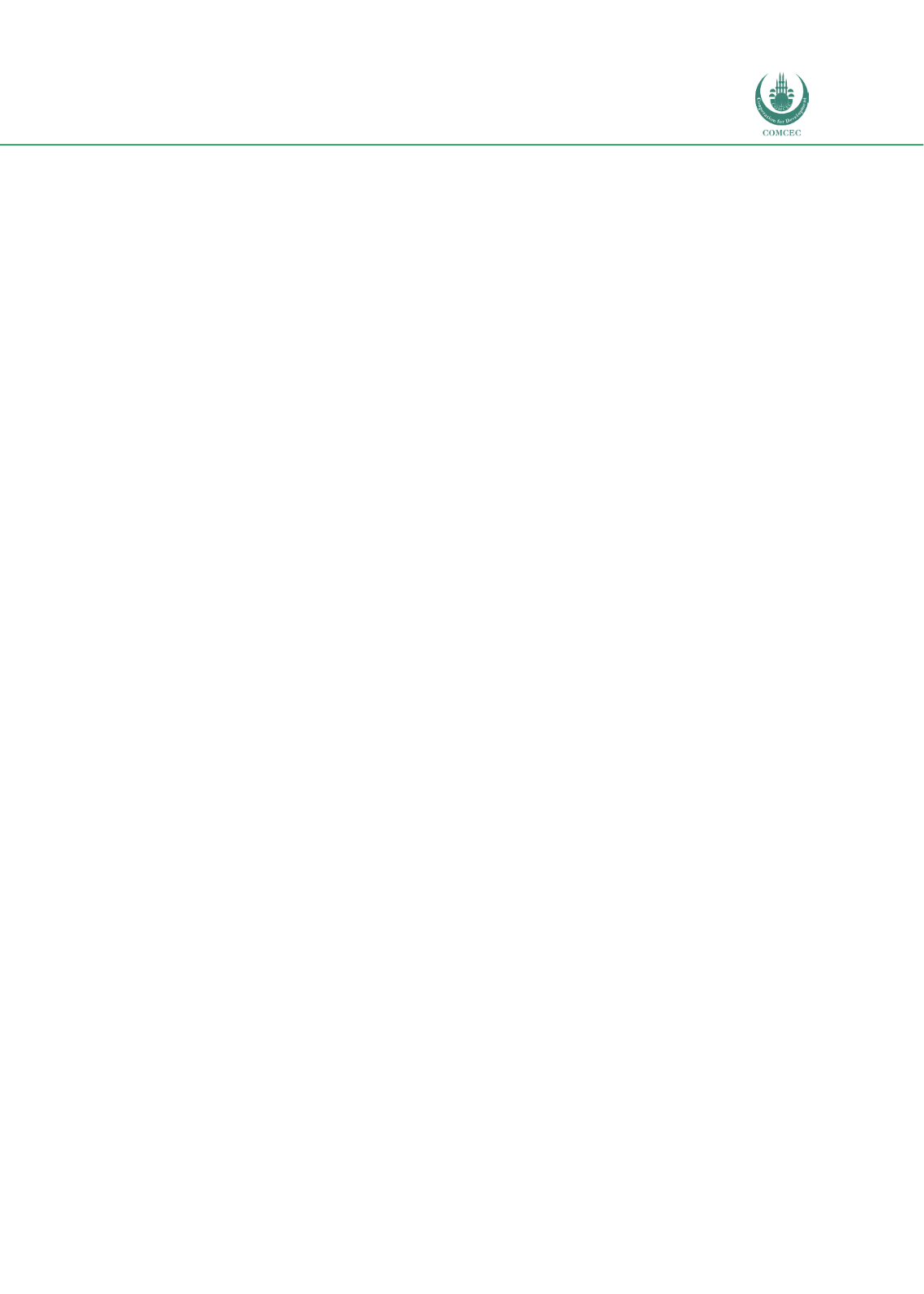

Infrastructure Financing through Islamic
Finance in the Islamic Countries
87
4.1.5.3. International Sources
International sources of Islamic finance come from IDB. Chart 4.1.10 shows that during 1976-
2016 Indonesia received total financing of USD 2.952 billion from IDB. From 2016 onwards an
additional 6 projects worth USD 836.3 were financed in the country.
4.1.6.
Conclusion and Recommendations
The government and financial market regulators have had national programs, namely RPJMN,
to accelerate infrastructure projects. Special acts and presidential decrees on fostering
infrastructure financing have been determined and applied to ministries and financial market
regulators (Bank Indonesia, Financial Services Authority and Ministry of Finance) to
collaboratively support infrastructure development. Indonesia has established a special
institution, PT SMI, to provide long-term financing and advisory services related to
infrastructure projects. Furthermore, the Indonesian Infrastructure Guarantee Fund is a
unique institution that provides guarantees on fulfilling the contractual obligations of PPP by
the government to encourage the participation of the private sector.
Indonesia is one of the few countries in which the sukuk sector is larger than the Islamic
banking sector. The Islamic banking sector which constitutes only 5.5% of the overall banking
sector has invested 8.4% of its assets in the infrastructure sector. The capital markets in
general and sukuk market have played a more dominant role in raising funds for the
infrastructure sector in Indonesia. The government has issued various types of sukuk which
have helped the growth of the sukuk market. While some of the sovereign sukuk are general in
nature, whereby funds are raised to cover budgetary expenses, some sukuk are project-
specific.
Furthermore, Indonesia has also issued retail sukuk that have expanded the investor base on
the one hand and provided retail investors opportunities to invest in alternative Shariah
compliant asset classes. The dominant role of the government for infrastructure financing is
also helping the development of the sukuk market and further attracts other Islamic investors
to invest in the government or corporate sukuk. Thus, by purchasing the sukuk, many financial
institutions including Islamic banks provide funds indirectly in infrastructure projects.
Indonesia has also initiated pioneering initiatives in using the social sector to provide social
infrastructure services. Using zakat and waqf funds for social infrastructure sectors not only
enables the provision of social infrastructure services to the deprived segments of the
population, it would also free up resources for the government to support other public
infrastructure such as transportation.
Given the above, Table 4.1.8 identifies the issues and presents the recommendations to further
enhance the role of Islamic finance in infrastructure development in Indonesia.
















